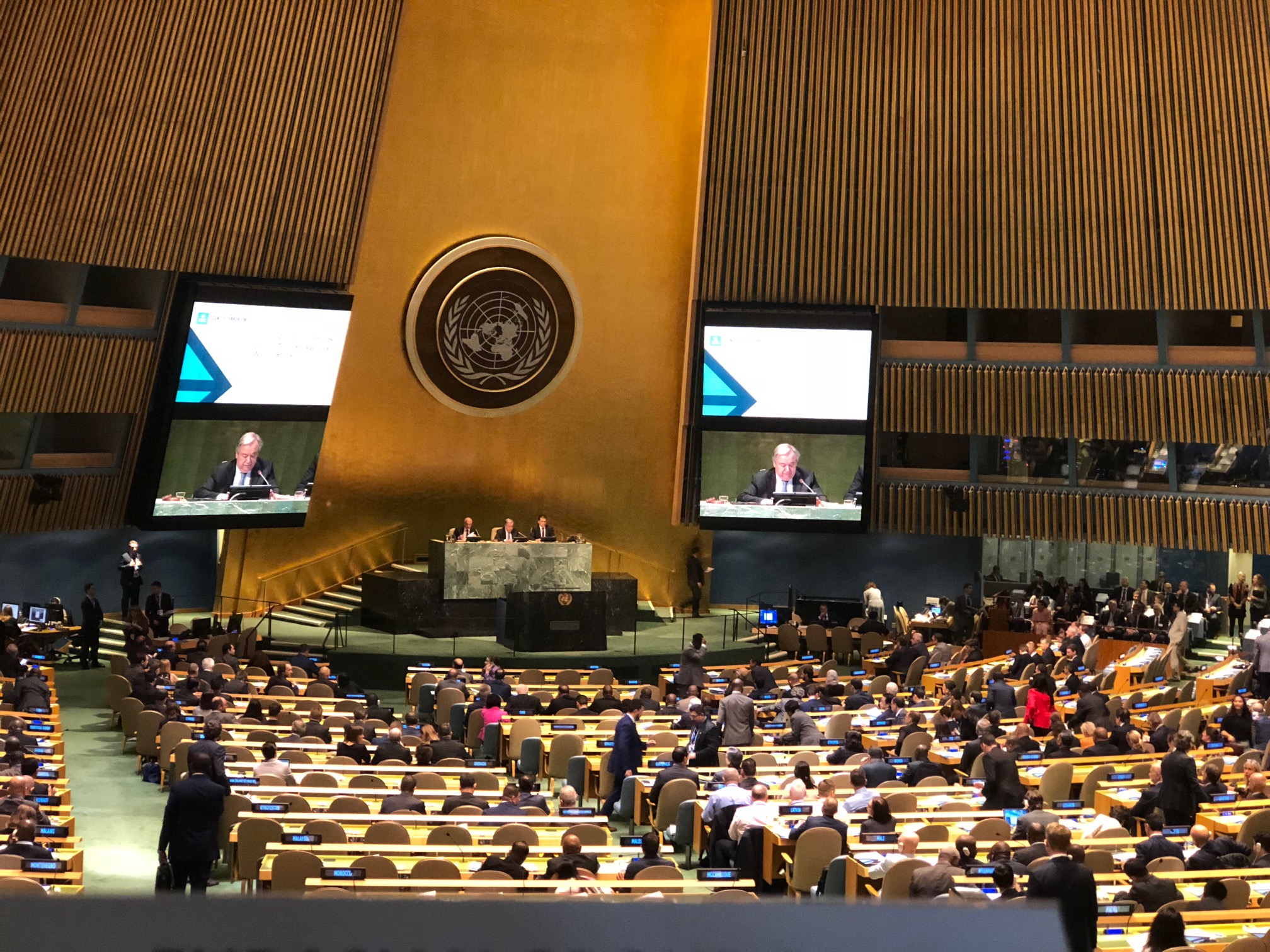-

29 June, 2018
The first United Nations High-level Conference of Heads of Counter-Terrorism Agencies of Member States was held at United Nations Headquarters on 28 and 29 June 2018. The overarching theme for the Conference is “Strengthening international cooperation to combat the evolving threat of terrorism”. The conference aimed to build a new partnership for multilateral cooperation to strengthen the international community’s counter-terrorism efforts.
Conference participants included Member States represented by Heads of Counter-Terrorism agencies, regional organisations, civil society organisations, and the United Nations Global Counter-Terrorism Coordination Compact Entities. The EAG Secretariat took part in the event at the invitation of Mr. Voronkov, Under-Secretary-General of the United Nations Counter-Terrorism Office.
“This Conference aims to exchange good practices and lessons learned and build a new partnership to increase international counter-terrorism cooperation”, - said Mr. Vladimir Voronkov.
With new solutions proposed, and new partnerships established, the United Nations Secretary-General told delegates from Member States attending the first ever High-Level Conference on Counter-Terrorism, that he was committed to meeting the challenge of “keeping your citizens safe”.
“We must fight terrorism together, with methods that do not compromise the rule of law and human rights,” said Antonio Guterres, speaking at the end of the two-day conference marking Counter-Terrorism Week, at UN Headquarters in New York.
The UN chief said that “we should engage with all who can help us achieve our goals”, including empowering young people through education, jobs and training, and engaging women and all of civil society in the fight against terrorism.
He said consideration was being given to establishing a new unit in the UN Office of Counter-Terrorism, to ensure that the views of civil society groups – who were among the more than 1,000 delegates attending the landmark two-day event – are “fully reflected” in policies and programmes.
A Global Network of Counter-Terrorism Coordinators, was another likely initiative he said, which would allow expertise and best-practices to be more effectively shared.
Prevention was also key said Mr. Guterres, adding that “terrorists remain determined to find a weakness in our defence…To stay ahead of the terrorists, I call on the international community, the private sector and academia, to share knowledge, expertise and resources to prevent new technologies becoming lethal terrorist weapons,” said the Secretary-General.
During the two-day conference, additional side-events took place, such as: “FTF Returnees: Prosecution, Rehabilitation and Reintegration”.
The aim of this side event was shed more light by senior officials and experts who have worked on the return, rehabilitation and reintegration of FTFs. It seeks to provide an opportunity to Members States to express their own concerns, challenges, and perspectives regarding the phenomenon of returning FTFs. It also aimed to assist Members States in countering this challenge by discussing the outcome of one of the latest research projects on the subject, the experience of Mohamed Ben Naif Counselling and Care Centre, and the lessons that can be learned from the reintegration of returning FTFs in Europe. The Side Event consisted of three main presentations. The first addressed the threat, challenges and main lessons learned in the European Union as FTFs have returned from Iraq and Syria. The second discussed the outcomes of the UNCCT research project on Enhancing the Understanding of the FTF Phenomenon and how these can be used in developing effective policies to address the rehabilitation and reintegration of FTFs. The project sheds important lights on the key motivations and diversity of FTFs, a necessary knowledge to devise effective reintegration programs. The third presentation addressed how the Mohamed Ben Naif Counselling and Care Centre in Saudi Arabia, the biggest and one of the main pioneers of deradicalisation and rehabilitation programs in the world, has tackled the FTF phenomenon.

 Login to your account
Login to your account Eng
Eng Рус
Рус